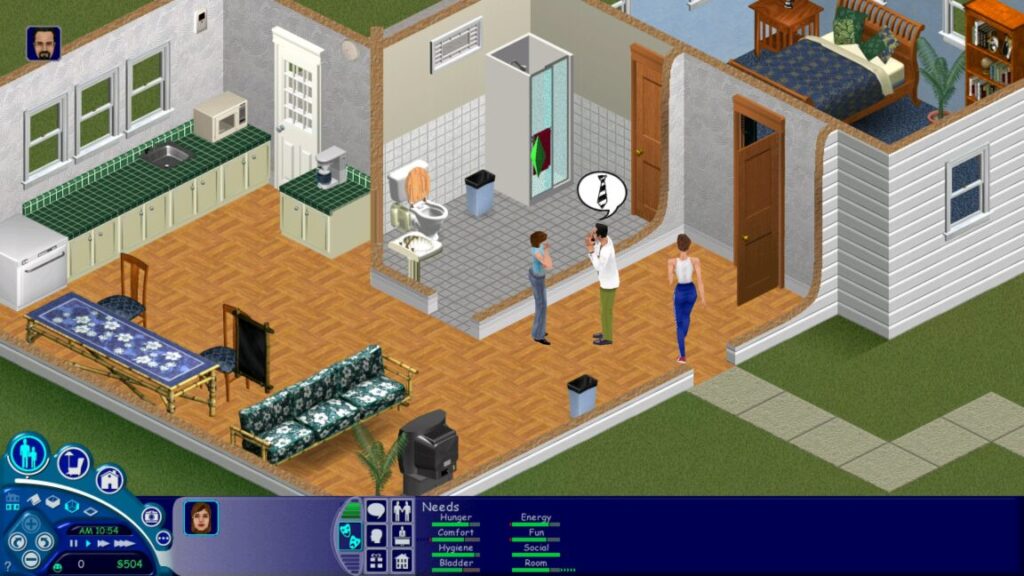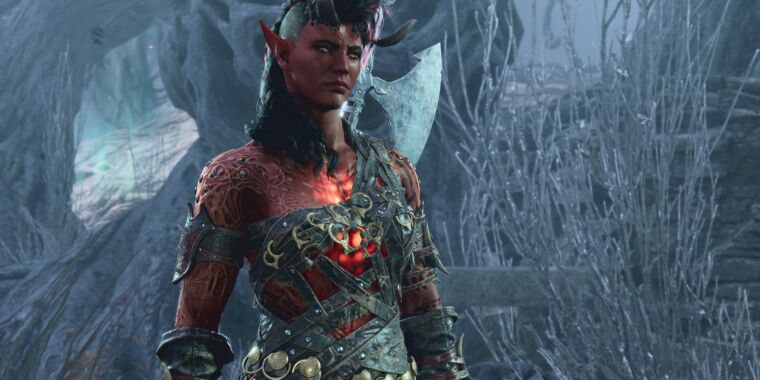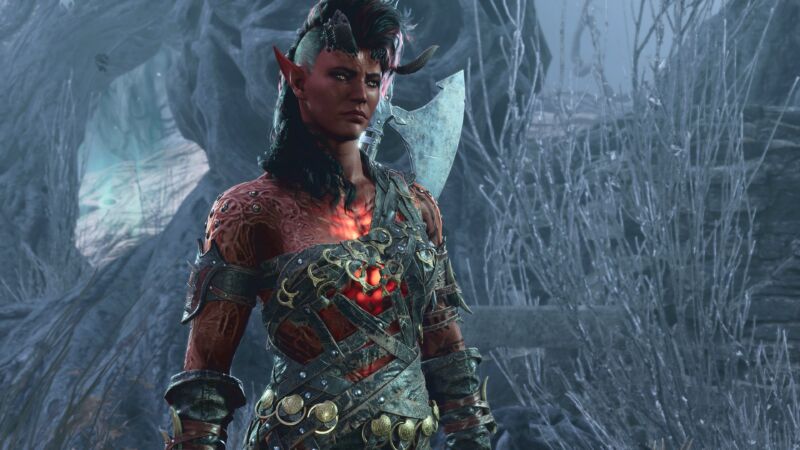The Sims re-release shows what’s wrong with big publishers and single-player games
Opinion: EA might be done with single-player games—but we’re not.
The Sims Steam re-release has all of the charm of the original, if you can get it working. Credit: Samuel Axon
It’s the year 2000 all over again, because I’ve just spent the past week playing The Sims, a game that could have had a resurgent zeitgeist moment if only EA, the infamous game publisher, had put enough effort in.
A few days ago, EA re-released two of its most legendary games: The Sims and The Sims 2. Dubbed the “The Legacy Collection,” these could not even be called remasters. EA just put the original games on Steam with some minor patches to make them a little more likely to work on some modern machines.
The emphasis of that sentence should be on the word “some.” Forums and Reddit threads were flooded with players saying the game either wouldn’t launch at all, crashed shortly after launch, or had debilitating graphical issues. (Patches have been happening, but there’s work to be done yet.)
Further, the releases lack basic features that are standard for virtually all Steam releases now, like achievements or Steam Cloud support.
It took me a bit of time to get it working myself, but I got there, and my time with the game has reminded me of two things. First, The Sims is a unique experience that is worthy of its lofty legacy. Second, The Sims deserved better than this lackluster re-release.
EA didn’t meet its own standard
Look, it’s fine to re-release a game without remastering it. I’m actually glad to see the game’s original assets as they always were—it’s deeply nostalgic, and there’s always a tinge of sadness when a remaster overwrites the work of the original artists. That’s not a concern here.
But if you’re going to re-release a game on Steam in 2025, there are minimum expectations—especially from a company with the resources of EA, and even more so for a game that is this important and beloved.
The game needs to reliably run on modern machines, and it needs to support basic platform features like cloud saves or achievements. It’s not much to ask, and it’s not what we got.
The Steam forums for the game are filled with people saying it’s lazy that EA didn’t include Steam Cloud support because implementing that is ostensibly as simple as picking a folder and checking a box.
I spoke with two different professional game developers this week who have previously published games on Steam, and I brought up the issue of Steam Cloud and achievement support. As they tell it, it turns out it’s not nearly as simple as those players in the forums believe—but it still should have been within EA’s capabilities, even with a crunched schedule.
Yes, it’s sometimes possible to get it working at a basic level within a couple of hours, provided you’re already using the Steamworks API. But even in that circumstance, the way a game’s saves work might require additional work to protect against lost data or frequent problems with conflicts.
Given that the game doesn’t support achievements or really anything else you’d expect, it’s possible EA didn’t use the Steamworks API at all. (Doing that would have been hours of additional work.)
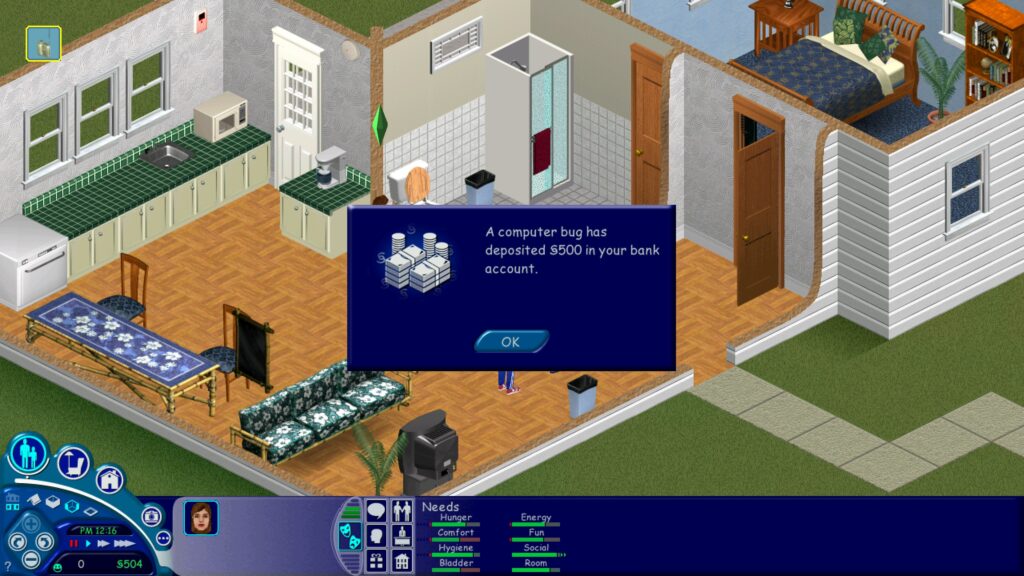
Sadly, this is not the sort of computer bug players are encountering. Credit: Samuel Axon
I’m not giving EA a pass, though. Four years ago, EA put out the Command & Conquer Remastered Collection, a 4K upscale remaster of the original C&C games. The release featured a unified binary for the classic games, sprites and textures that were upscaled to higher resolutions, quality of life improvements, and yes, many of the Steam bells and whistles that include achievements. I’m not saying that the remaster was flawless, but it exhibited significantly more care and effort than The Sims re-release.
I love Command & Conquer. I played a lot of it when I was younger. But even a longtime C&C fan like myself can easily acknowledge that its importance in gaming history (as well as its popularity and revenue potential) pale in comparison to The Sims.
If EA could do all that for C&C, it’s all the more perplexing that it didn’t bother with a 25th-anniversary re-release of The Sims.
Single-player games, meet publicly traded companies
While we don’t have much insight into all the inner workings of EA, there are hints as to why this sort of thing is happening. For one thing, anyone who has worked for a giant corporation like this knows it’s all too easy for the objective to be passed down from above at the last minute, leaving no time or resources to see it through adequately.
But it might run deeper than that. To put it simply, publicly traded publishers like EA can’t seem to satisfy investors with single-purchase, single-player games. The emphasis on single-player releases has been decreasing for a long time, and it’s markedly less just five years after the release of the C&C remaster.
Take the recent comments from EA CEO Andrew Wilson’s post-earnings call, for example. Wilson noted that the big-budget, single-player RPG Dragon Age: The Veilguard failed to meet sales expectations—even though it was apparently one of EA’s most successful single-player Steam releases ever.
“In order to break out beyond the core audience, games need to directly connect to the evolving demands of players who increasingly seek shared-world features and deeper engagement alongside high-quality narratives in this beloved category,” he explained, suggesting that games need to be multiplayer games-as-a-service to be successful in this market.
Ironically, though, the single-player RPG Kingdom Come Deliverance 2 launched around the same time he made those comments, and that game’s developer said it made its money back in a single day of sales. It’s currently one of the top-trending games on Twitch, too.
It’s possible that Baldur’s Gate 3 director Swen Vincke hit the nail on the head when he suggested at the Game Developers Conference last year that a particular approach to pursuing quarterly profits runs counter to the practice of making good games.
“I’ve been fighting publishers my entire life, and I keep on seeing the same, same, same mistakes over and over and over,” he said. “It’s always the quarterly profits. The only thing that matters are the numbers.”
Later on X, he clarified who he was pointing a finger at: “This message was for those who try to double their revenue year after year. You don’t have to do that. Build more slowly and make your aim improving the state of the art, not squeezing out the last drop.”
In light of Wilson’s comments, it’s a fair guess that EA might not have put in much effort on The Sims re-releases simply because of a belief that single-player games that aren’t “shared world experiences” just aren’t worth the resources anymore, given the company’s need to satisfy shareholders with perpetual revenue growth.
Despite all this, The Sims is worth a look
It’s telling that in a market with too many options, I still put the effort in to get the game working, and I spent multiple evenings this week immersed in the lives of my sims.
Even after 25 years, this game is unique. It has the emergent wackiness of something like RimWorld or Dwarf Fortress, but it has a fast-acting, addictive hook and is easy to learn. There have been other games besides The Sims that are highly productive engines for original player stories, but few have achieved these heights while remaining accessible to virtually everyone.
Like so many of the best games, it’s hard to stop playing once you start. There’s always one more task you want to complete—or you’re about to walk away when something hilariously unexpected happens.
The problems I had getting The Sims to run aren’t that much worse than what I surely experienced on my PC back in 2002—it’s just that the standards are a lot higher now.
I’ve gotten $20 out of value out of the purchase, despite my gripes. But it’s not just about my experience. More broadly, The Sims deserved better. It could have had a moment back in the cultural zeitgeist, with tens of thousands of Twitch viewers.
Missed opportunities
The moment seems perfect: The world is stressful, so people want nostalgia. Cozy games are ascendant. Sandbox designs are making a comeback. The Sims slots smoothly into all of that.
But go to those Twitch streams, and you’ll see a lot of complaining about how the game didn’t really get everything it deserved and a sentiment that whatever moment EA was hoping for was undermined by this lack of commitment.
Instead, the cozy game du jour on Twitch is the Animal Crossing-like Hello Kitty Island Adventure, a former Apple Arcade exclusive that made its way to Steam recently. To be clear, I’m not knocking Hello Kitty Island Adventure; it’s a great game for fans of the modern cozy genre, and I’m delighted to see an indie studio seeing so much success.
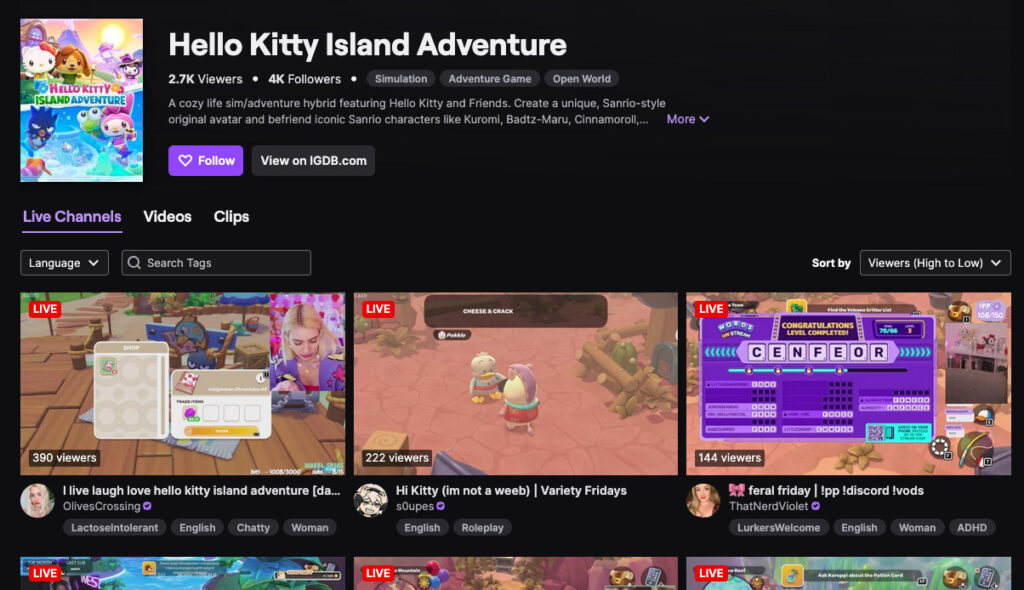
The cozy game of the week is Hello Kitty Island Adventures, not The Sims. Credit: Samuel Axon
The takeaway is that we can’t look to big publishers like EA to follow through on delivering quality single-player experiences anymore. It’s the indies that’ll carry that forward.
It’s just a bummer for fans that The Sims couldn’t have the revival moment it should have gotten.
Samuel Axon is a senior editor at Ars Technica. He covers Apple, software development, gaming, AI, entertainment, and mixed reality. He has been writing about gaming and technology for nearly two decades at Engadget, PC World, Mashable, Vice, Polygon, Wired, and others. He previously ran a marketing and PR agency in the gaming industry, led editorial for the TV network CBS, and worked on social media marketing strategy for Samsung Mobile at the creative agency SPCSHP. He also is an independent software and game developer for iOS, Windows, and other platforms, and he is a graduate of DePaul University, where he studied interactive media and software development.
The Sims re-release shows what’s wrong with big publishers and single-player games Read More »
